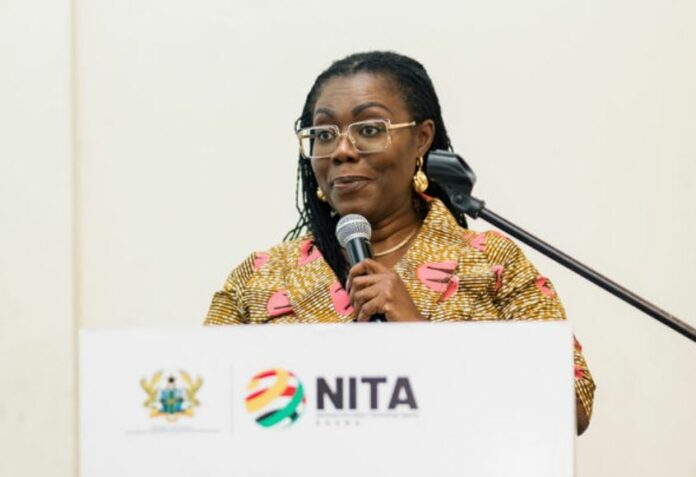adverts
Government launches digital certification policy to boost trust in online transactions
The Ghanaian government has announced a new policy aimed at enhancing the reliability of digital systems and transactions by providing digital certificates to all identifiable businesses and individuals.
This initiative is designed to ensure easy identification and build public confidence in the digital ecosystem.
Minister of Communications and Digitalisation, Ursula Owusu-Ekuful, revealed the policy during the Digital Trust Conference, part of the inaugural National ICT Week organised by the National Information Technology Agency (NITA).
adverts
She emphasised that trust is critical in digital interactions where physical presence is absent, making digital certificates essential for verifying identities on online platforms.
Owusu-Ekuful stated that later this year, NITA will authorise and license private entities to issue digital certificates to businesses and individuals. These certificates will cater to various scenarios, bolstering digital trust both within Ghana and internationally.
“This certification is crucial for expanding the scope and reliability of digital trust within Ghana’s digital landscape and beyond,” she noted, encouraging interested entities to consult NITA for guidance on issuing digital certificates.
The Minister highlighted the deployment of a root public key infrastructure (PKI), which has already improved cross-border transactions and will soon support the Ghana Card, visa issuance, and the new chip-embedded passport.
Ghana has registered with the International Civil Aviation Organisation (ICAO) to facilitate the sharing of digital certificates for global authentication and verification, making the Ghana Card a valid travel document at over 44,000 airports worldwide.
Ghana’s digital transformation strategy focusses on three key areas: mobile money interoperability for seamless financial transactions, a digital address system for easy location identification, and digital certification for secure online identification. With a robust mobile money platform and digital address system already in place, the government is now focussing on rolling out digital certificates.
Owusu-Ekuful stressed that building digital trust involves securing data, safeguarding transactions, and ensuring the credibility of digital entities, which fosters innovation, security, and public confidence in digital services.
To support digital trust, the government has also established an integrated security operations centre to combat cyber threats and is continuously enhancing its cybersecurity framework.
The Minister pointed out the importance of digital skills in maintaining trust, noting that without proper understanding of digital systems, citizens may be hesitant to use them.
The government has allocated resources for digital skills training through various programs, including the Ghana Digital Acceleration Project, which offers digital training for public servants.
Additionally, partnerships with the Tony Blair Foundation and the Smart Africa Academy aim to upskill Ghanaians, particularly those in the public sector.
Solomon Kofi Richardson, Chief Technical Officer at NITA, confirmed that a unit will soon be established to license entities for issuing digital certificates, urging businesses to explore innovative applications that could benefit from certification.


